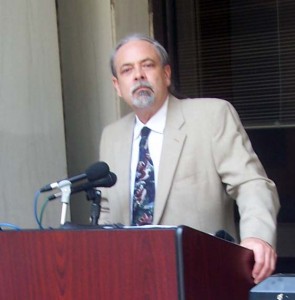By Beth Sherouse
Columbia, SC
Since movement veteran Cleve Jones announced plans for a national gay rights march on Washington following the passage of California’s Prop. 8 last November, reactions from the LGBT community have been mixed. Supporters of October’s National Equality March are adopting a grassroots lobbying strategy, demanding “Equal protection in all matters governed by civil law in all 50 states,” and promoting a more direct appeal to the federal government for LGBT rights. Lukewarm supporters and skeptics of the march, mainly organizations like the Human Rights Campaign and state Equality groups, are concerned that the march will drain resources from the state-by-state approach for marriage equality. Critics of the march movement are also concerned that this march may share the fate of previous gay rights marches in ’79, ’87, ’93, and 2000, which seem to have accomplished little.
I have been a supporter of HRC for most of my adult life, and I have worked with both state, local, and campus organizations in South Carolina and Georgia. While I will continue to support such organizations, I think a national approach offers more hope for me and other South Carolinians than anything HRC or state-by-state marriage equality can offer.
South Carolina is one of only five states that has no hate crimes laws; other than a limited policy in the city of Columbia, there are no laws banning discrimination in employment or housing based on sexual orientation or gender identity; and the 2006 constitutional amendment prohibiting same-sex marriage in SC passed by 78%. For people who do not live in California or Massachusetts, for those who are part of otherwise disadvantaged communities, for those who live in constant fear of employment discrimination and physical violence because their states give them no protection, for those whose lives and relationships are invisible to most of America, marriage equality in progressive states is nothing more than a symbolic victory, and symbols cannot help them provide for their families or protect themselves from discrimination.
I do not plan to spend the rest of my life in SC. But for those LGBT folks who call South Carolina home, gay marriage fights in states like Maine and California offer little more than momentary comfort against communities in which they will remain second-class citizens for the foreseeable future unless the federal government intervenes. The state-by-state approach to equality seems meaningless in a state that has historically been several decades behind the rest of the country in terms of civil rights. If the federal government had left the battle for desegregation up to states to fight on their own, de jure segregation would arguably still be in place here in SC and a few of its neighboring deep South states.
We need to build support behind a federal gay rights agenda, because if we leave our rights up to the conservative majorities in states across the nation, we will never achieve equality. LGBT Americans should ALL enjoy the same civil rights as their heterosexual counterparts, whether they live in San Francisco or Atlanta, New York or Charleston. The federal government must step in and defend our civil rights in places where our community cannot adequately defend itself, and we must show Washington lawmakers that we are looking to them to change laws as we go about the work of changing hearts and minds.
So this is why we march on Washington on Oct. 10-11. We march because at no time in our nations’ history have gays, lesbians, bisexuals, and transgender people been more visible and political. We march because marriage is but one of the many rights and privileges that we deserve as citizens of this country, and because it is time for the Obama administration to make good on its promises to the LGBT community. We march because as Americans, our civil rights should not depend on our sexual orientation or gender identity, nor should they depend on what state we live in. We march because visibility matters and is the key to dismantling the foundations of prejudice and discrimination. And we march with the hope that standing in solidarity with each other and asserting our place in this nation has transformative potential.

